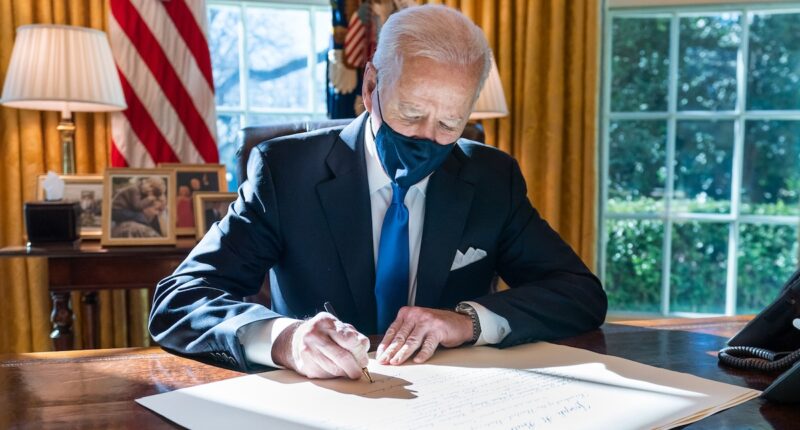Whatever sense of transparency The New York Times and Joe Biden’s team were aiming for with that recent interview about his use of an autopen as president, I’m not sure they realize just how transparent it actually was.
Times reporter Charlie Savage on Sunday published what the paper said were excerpts of a 10-minute-long interview with the former president, mostly regarding a slew of scandalous, 11th-hour pardons he issued before exiting office, and his alleged authorization of his staff to use an autopen to sign off on those pardons. It’s enough that Biden would have independently felt the need to explain this almost six months after leaving office, but the entire transcript — or, at least what The Times decided to publish of it — reads like he was coached by some very nervous people to say some very specific things in the hope that it might shield them from looming legal jeopardy.
That’s of course almost certainly what happened. The circumstances under which Biden, by his own admission, allowed the use of a machine to sign presidential directives are highly suspect. His most controversial pardons came after his party lost the 2024 election, and that was after Biden was forced to abandon his campaign because his mental and physical decline were no longer deniable by even his most craven allies.
The public record so far holds that what took place as Biden’s health was in a free fall was the takeover of a president’s authority to sign last-minute pardons for hundreds of people. That included preemptive pardons for prominent individuals who had neither been investigated nor charged with any crimes. Biden can say now that he delegated that authority to his staff, but it’s unclear whether that’s permissible for a president who, in all likelihood, was not fully cognizant.
It’s obvious that in light of current House and Justice Department investigations of these events, he was compelled, in one way or another, to publicly state, over and over, that the decisions made were his.
From the Times transcript:
— “I made every single one of those.”
— “[Y]es, I made every decision.”
— “I consciously made all those decisions, among others.”
— “I was deeply involved.”
— “I laid out a strategy how I want to go about these, dealing with pardons and commutations.”
— “I was proud I ran the process I ran.”
— “I didn’t make this decision quickly. I made it thoroughly and after significant discussion.”
These are the repetitions of Biden over a period of just 10 minutes, according to The Times. It’s the type of thing that could easily and far more appropriately be stated in a press release. But isn’t it more reassuring to say they were relayed in an “interview,” which carries the suggestion that it was an extemporaneous and engaging conversation? Isn’t it what you might have requested from the former president if, like so many of his staff, you were under subpoena?
None of it reads authentically, and therein lies the irony: So much of Biden’s presidency, particularly the final year of it, was unreal, and everyone could tell we were being lied to. That the Biden saga continues to feel like a major production requiring the manpower of countless other individuals is exactly what everyone expects.
He wasn’t in control of his presidency, and he’s not in control now.









